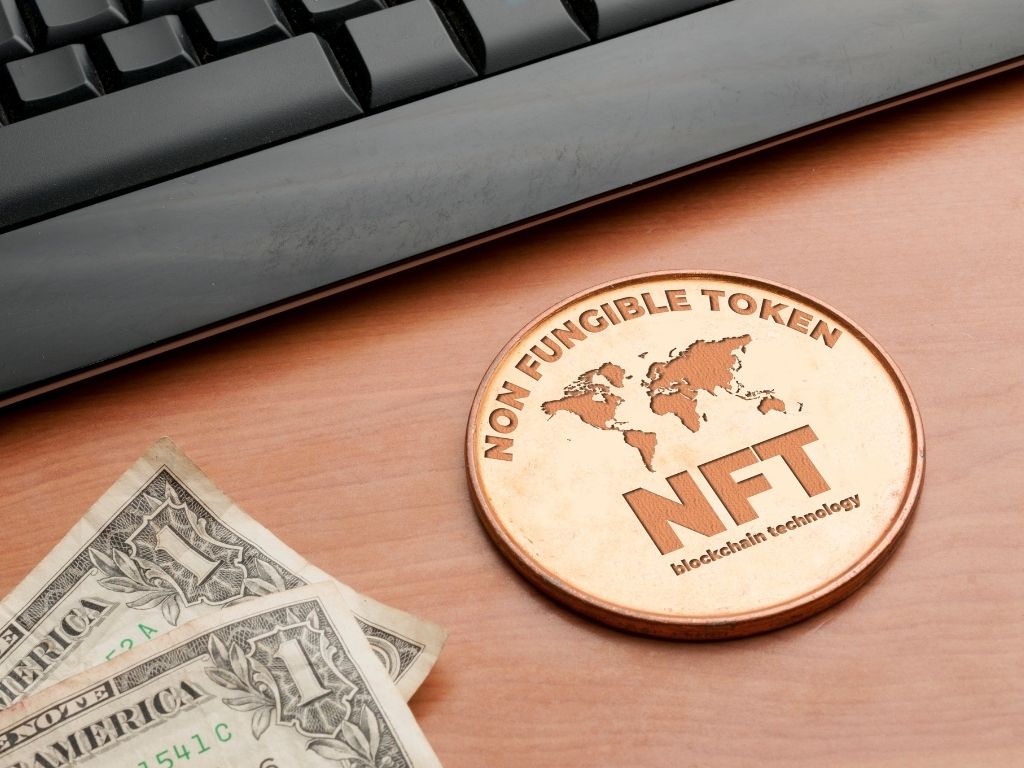Here’s How to Stay Away From NFT Scams
NFTs have taken over the planet. Individuals, businesses, and governments are studying NFTs all across the world. Blockchain’s core technology makes digital assets and goods rare and precious. This is a brand-new industry segment. Over the next ten years, NFTs will increase by leaps and bounds. So take advantage of your interest in NFTs and join a flourishing market! However, be wary of NFT rip-offs. We’ll tell you why.
Individuals can innovate without being stifled, which is a plus. However, a disadvantage is that this provides an ideal ground for NFT scammers, thievery, and misinformation to flourish. This makes individuals apprehensive about entering the NFT environment, and many people avoid it because of the danger.
Today, we’ll go over five frequent NFT rip-offs and how to avoid NFT scams.
Phishing is the first NFT scam.
What exactly is phishing? Since the beginning of the commercial internet, phishing has been a problem. Scammers and hackers try to fool you into clicking a link that appears to be authentic. As a result, you divulge personal information, such as your cryptocurrency wallet address. New users are especially vulnerable because they are inexperienced with the medium and eager to try new things.
🧵A thread on how to avoid cheap NFT scams for noobs💡
If you’re new to the nft space or even if you’ve been in the space for a while, you might find this thread useful👇 RT
— PapinkoDabalaya💎 (@iamdarlinton) May 25, 2022
Always be wary of ad banners on different websites that contain links in the event of NFT scams. They may say something like “free NFT giveaway, please leave your wallet address.” They must be avoided at all costs. First and foremost, genuine NFT initiatives will only ask for your wallet address through their own methods, never through a third-party website. Second, it’s a massive red flag if you’re asked for your 12-word seed phrase. No one will ever ask you for the seed phrase to your cryptocurrency wallet.
Remember that phishing scams have resulted in the loss of all NFTs and cryptocurrencies.
Scam 2 of the NFT: Pump and Dump
This is how a classic NFT pump and dump system works. A new NFT project is released, and you’d be ecstatic to have discovered it first.
You buy into the hype because the initiative is on its path to widespread popularity once the NFTs start to mint. The NFT project team packs its belongings when prices reach a particular level. They sell all of their works, deactivate all of their social media accounts, and vanish with your money. The NFT fraud here is that you’ll be left with useless NFTs that have no value.
Always conduct independent research and stick to the fundamentals. Examine the founding team’s credentials. Do they appear to be anonymous (a red flag), or do they have a track record? Is it the NFT’s utility or the future trading price that they’re discussing? (a warning sign) It’s astonishing how easily you can distinguish NFT scams from the real thing by following a few simple research procedures. Chat with project participants on social media to get a sense of their feelings.
Catfishing is the third NFT scam.
Scammers and hackers impersonate members of the original team or members of the community. It involves mimicking someone in order to deceive you into divulging personal information. As an example, your NFT wallet address. NFT projects can easily get started online, hire influencers, and begin marketing.
It is well known that a founding team member will not initiate a direct dialogue. Unless you first engage with them in a public venue while discussing pertinent topics. So, if you get an email from someone claiming to be a founding team member, ignore it.
NFT Scam: Plagiarism and Counterfeiting
Counterfeiters and plagiarists have appeared out of nowhere to disrupt the NFT industry. Anyone can turn any picture or creative media into an NFT using software available from NFT marketplaces. Imagine how easy it is to distinguish counterfeit physical products from originals when it comes to NFTs. Scammers using NFTs only need to steal whatever image they want and mint it into an NFT. The original artists may not even be aware of it if enough promotion is done.
How can this be avoided? Check to see if the account selling you the NFT is a verified profile. Alternatively, approach the artist directly on Discord (most artists are on Discord) and inquire if this artwork was turned into an NFT by her. This simple deed will save you a significant amount of money and time.
Also, read – 7 Classic NFT Memes that Sold for a High Price
NFT Scam: Bidding
Bidding NFT scams, while not common, are easy to fall prey to, especially in the secondary NFT market. It’s a tactic in which bidders deceive you into accepting a lower bid than you expected by changing the underlying cryptocurrency utilized instead of the bid you wanted. For example, instead of 5 ETH, you can get 5 ATOM or 5 USD.
It’s simple to avoid these con artists. To begin, be certain you never take anything less than the amount you bid. Second, even if you accept a lower bid, double-check the currency used to submit the bid, then triple-check when it’s time to mark the transaction as complete.
NFT Scams are unavoidable.
Every new technology undergoes a ‘validation period,’ during which developers and founders strive to figure out what works and what doesn’t. While nasty in nature, NFT scammers will assist us in identifying and correcting flaws in the existing NFT market. Individuals who have been victims of NFT scams reinforce their belief in NFTs by ensuring that others do not suffer the same fate. In this regard, a number of educational projects are being pushed.
Stay informed with daily updates from Blockchain Magazine on Google News. Click here to follow us and mark as favorite: [Blockchain Magazine on Google News].
Get Blockchain Insights In Inbox
Stay ahead of the curve with expert analysis and market updates.
latest from tech
Disclaimer: Any post shared by a third-party agency are sponsored and Blockchain Magazine has no views on any such posts. The views and opinions expressed in this post are those of the clients and do not necessarily reflect the official policy or position of Blockchain Magazine. The information provided in this post is for informational purposes only and should not be considered as financial, investment, or professional advice. Blockchain Magazine does not endorse or promote any specific products, services, or companies mentioned in this posts. Readers are encouraged to conduct their own research and consult with a qualified professional before making any financial decisions. The featured image used is just a creative depiction of the title and it does not intend to hurt sentiments of any person or institution. If it hurts anyone sentiments, please do not hesitate to reach out to Blockchain Magazine.

 Bitcoin
Bitcoin  Ethereum
Ethereum  XRP
XRP  Tether
Tether  Solana
Solana  USDC
USDC  Dogecoin
Dogecoin  Cardano
Cardano  Lido Staked Ether
Lido Staked Ether  TRON
TRON  Wrapped Bitcoin
Wrapped Bitcoin  Chainlink
Chainlink  Wrapped stETH
Wrapped stETH  Avalanche
Avalanche  Sui
Sui  Stellar
Stellar  Litecoin
Litecoin  Toncoin
Toncoin  Shiba Inu
Shiba Inu  LEO Token
LEO Token  Hedera
Hedera  USDS
USDS  Hyperliquid
Hyperliquid  Polkadot
Polkadot  WETH
WETH  MANTRA
MANTRA  Bitcoin Cash
Bitcoin Cash  Bitget Token
Bitget Token  Ethena USDe
Ethena USDe  Wrapped eETH
Wrapped eETH  Uniswap
Uniswap  Monero
Monero  NEAR Protocol
NEAR Protocol  WhiteBIT Coin
WhiteBIT Coin  Pepe
Pepe  Aave
Aave  Ondo
Ondo  Bittensor
Bittensor  Aptos
Aptos  Dai
Dai  Internet Computer
Internet Computer  Official Trump
Official Trump  Mantle
Mantle  Ethereum Classic
Ethereum Classic  Tokenize Xchange
Tokenize Xchange  OKB
OKB  Gate
Gate  sUSDS
sUSDS  Sonic (prev. FTM)
Sonic (prev. FTM) 




